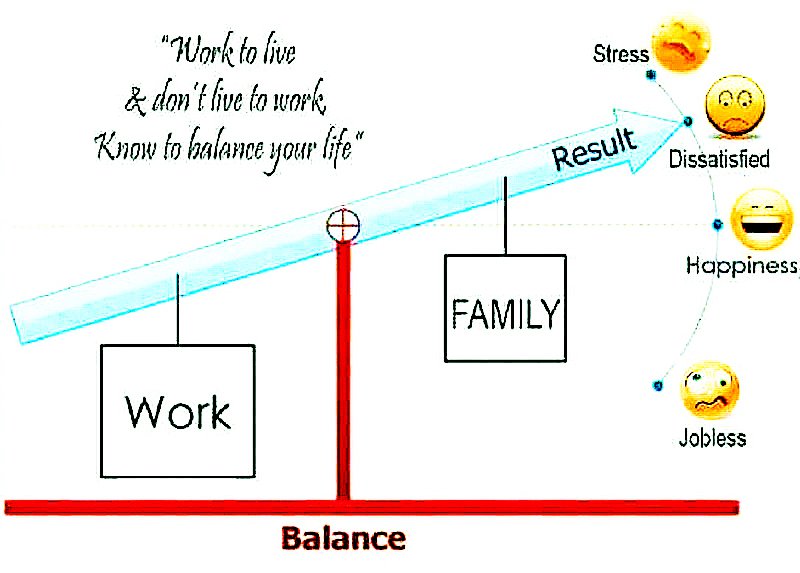Your #Career : 5 Things you Should Never Tell your #Boss (and What to Say Instead)…What you Say to your Boss can Impact your #CareerGrowth in the Company, So Choose your Words Wisely.
Whether you’re lucky enough to have a great boss or have an uncomfortably rocky relationship with your manager, it pays to put some thought into your interactions. The language you use with your boss could end up dictating whether you get promoted, end up on the chopping block, or fall somewhere in between.
With that in mind, here are five phrases you should make an effort to avoid uttering to your boss–even if they seem appropriate on the spot.
1. “THAT’S NOT IN MY JOB DESCRIPTION”
We all have our share of grunt work to tackle on the job, whether we’re entry-level assistants or senior-level executives. So if you’re asked to do something that’s outside your purview, don’t be so quick to push back. Rather, be a good sport and comply, especially if it’s the first time you’re being put in that position.
Furthermore, if you’re going to push back, do so on the basis of being too busy, as opposed to being too good for the lowly or undesirable task your manager attempts to assign. Saying, “I’m afraid that doing this will cause me to miss my project deadline” sounds a lot better than, “That’s not what you hired me to do.”
Related: Yes, you can still get stuff done with a hands-off boss
Like this Article ? Share It ! You now can easily enjoy/follow/share Today our Award Winning Articles/Blogs with Now Over 2.5 Million Growing Participates Worldwide in our various Social Media formats below:
FSC LinkedIn Network: www.linkedin.com/in/fscnetwork
Facebook: http://www.facebook.com/pages/First-Sun-Consulting-LLC-Outplacement-Services/213542315355343?sk=wall
Google+: https://plus.google.com/115673713231115398101/posts?hl=en
Twitter: Follow us @ firstsunllc
Question: Want the ‘the best/current articles/blogs on the web’ on Job Search, Resume, Advancing/Changing your Career, or simply Managing People?
Answer: Simply go to our FSC Career Blog below & type(#career, #leadership, #life) in Blog Search: https://www.firstsun.com/fsc-career-blog/
What Skill Sets do You have to be ‘Sharpened’ ?
Continue of article:
2. “THAT’S NOT WHAT YOU SAID”
In the course of our jobs, we’re often put in situations where there’s some miscommunication. But if that happens, and your boss calls you out for not following instructions, don’t bite back by insisting you’re in the right and he or she is in the wrong. Unless you have documented proof that your boss said what you claim he or she did, keep quiet.
Even if you have that proof–say, your manager sent instructions in writing, and is now backtracking and trying to put the blame on you–be polite about it. Pull up that email and say something like, “I really thought I was following these instructions precisely. Please show me where I went wrong, and let’s see how we can fix things.” It’ll spare your boss the embarrassment of being wrong, thus sparing you some backlash later on.
3. “IT’S NOT MY FAULT”
We all make mistakes at work. So if your boss calls you out on one, own up to it rather than deflect the blame. Even if you aren’t at fault, there’s a politically correct way to make that clear. For example, say your manager asks you to provide an estimate for a project, and you use your colleague’s inaccurate data to arrive at your own set of incorrect numbers. It’s easy enough to claim that you’re not at fault and point a finger at your coworker instead. But rather than go that route, say, “I should’ve done further diligence before relying on Bob’s numbers. I’ll be happy to run those calculations again and get you a more spot-on estimate.” This shows a degree of maturity that your manager will no doubt appreciate.
Related: How to talk to your boss about your career goals
4. “IT CAN’T BE DONE”
Maybe your boss wants you to turn around a major report in two hours, when you know it would normally take five to get that sort of task done. Tempting as it may be to throw your hands up in the air and state that it can’t be done, find a way to get it done to some degree. You might say, “I can turn around the first half of this report in time, and then prioritize the remainder first thing tomorrow.” It’s not a yes, but it’s also not a no, and that might be just enough to appease your manager.
5. “IT’S NOT FAIR”
Here’s a news flash: Life isn’t fair, and that applies to office life as well. So yes, maybe you’re being asked to work late for the second time this month when your colleague who sits next to you has yet to be asked, but for the love of job security, don’t mouth off to your boss about how unjust that situation is. You never know what weight your other colleagues are pulling, and what they’re sacrificing to get their jobs done. You also may not know what rewards your boss is secretly planning for your solid effort (more money, perhaps), so before you complain about things being unfair, take a step back and try to power through.
Related: Four times your boss doesn’t want your input (and how to get heard anyway)
Now if it becomes obvious that your boss is blatantly treating you unfairly–say, you’re always working late while every other member of your team clocks out at 5 p.m. consistently–then that gives you a leg to stand on. But think long and hard before moaning about one-off requests. And if you do complain, do so diplomatically. Try, “With all due respect, it seems like I’ve been pulling some long nights at the office lately. Can I help bring some other folks up to speed on these issues to better divvy up the load?”
Saying the wrong thing to your boss can come back to haunt you. Avoid these career-zapping phrases, and you’ll be a happier employee for it in the long run.
FastCompany.com | June 13, 2018 | BY MAURIE BACKMAN—THE MOTLEY FOOL 4 MINUTE READ



 Take the reins
Take the reins Know when to walk
Know when to walk



















 Responding to emails during off-work hours isn’t the only area in which you need to set boundaries. You need to make the critical distinction between what belongs to your employer and what belongs to you and you only. The items that follow are yours. If you don’t set boundaries around them and learn to say no to your boss, you’re giving away something with immeasurable value.
Responding to emails during off-work hours isn’t the only area in which you need to set boundaries. You need to make the critical distinction between what belongs to your employer and what belongs to you and you only. The items that follow are yours. If you don’t set boundaries around them and learn to say no to your boss, you’re giving away something with immeasurable value.